"Great for long-term study in smaller groups"
Tala F,
student from Japan
Genuinely enjoyed all of the teachers and particularly the conversation classes. The most negative part of my experience was the holiday-themed event lessons, which undermined my goal to take an intensive Japanese language course over winter vacation and instead focused on cultural customs and hands-on crafts. I appreciate the token nod to the holiday, but considering my timeline the two days of “no classes” for New Years were more than enough. I felt study expectations and prior knowledge required were left unclear during orientation and that the placement test is less than accurate. However, I did find Genki a valuable experience and I was impressed by the organized classrooms and consistent material. I wish I could have spent more time actively studying here without interruptions for holidays or holiday lessons. I would certainly recommend this school, particularly in smaller class sizes or private lessons.
Show details »
Read more...
My ratings for this school
Date of study
23 Dec 2019 - 3 Jan 2020
Would you recommend this school?
Yes
This is a verified review. This student has booked a course at this school through Language International.
"Fabulous 8 week experience"
Brandon Brookes,
student from UK
The classes were small so very great to talk to others and easy to hear the teachers. The teachers were very nice and easy to communicate to. the location was very convenient and easy to get to from the train station, the place i stayed was quiet however a tiny bit boring as i didnt know what to do at weekends.
Show details »
Read more...
My ratings for this school
Duration of study
7 weeks
Date of study
7 Oct 2019 - 29 Nov 2019
Would you recommend this school?
Yes
This is a verified review. This student has booked a course at this school through Language International.
"Well-organized and good teachers."
Cecilia Wirseen,
student from Sweden
My daughter, 14 years, was very disappointed. She chose Pop culture because she likes manga and anime. The course description made it sound like that all Japanese teaching would be based on actice learning through pop culture. Hovever, all lessens were just ordinary japanese. The pop culture element constituted of a saturday activity that were traditional culture, not pop. The school was very nice to us and tried to compensate incl refunding. But, still, my daughter had great expectations of a three-weeks exposion to japanese pop culture which did not came true. The host family was wonderful and Fukuoka an amazing city. Cecilia from Stockholm
Show details »
Read more...
My ratings for this school
Duration of study
2 weeks
Date of study
4 Jun 2018 - 22 Jun 2018
Would you recommend this school?
No
This is a verified review. This student has booked a course at this school through Language International.
"Short, but great experience at GENKI JACS, Fukuoka."
Susan Vasey,
student from USA
The only negative about my course at GENKI JACS, Fukuoka, was that I couldn’t stay longer. I was there for 2 weeks while most people in my class were there for 2-3 months, or longer. The teachers were all extremely personable, knowledgeable and excellent in their teaching methods.
The private apartment I rented was within an easy walking distance to the school and perfect for my needs. Even though I arrived on a Saturday night the check in instructions I received were precise and accurate.
Being a senior citizen, I did not participate in the extra-curricular activities organized by the school, yet I never felt out of place and actually went places and did things with other class members.
I would not hesitate to take classes again at GENKI JACS.
Show details »
Read more...
My ratings for this school
Date of study
16 Apr 2018 - 27 Apr 2018
Would you recommend this school?
Yes
This is a verified review. This student has booked a course at this school through Language International.
"Cool and serious school"
Maud RAUTURIER,
student from France
First, Genki School's staff were really great. All of them were nice and helpful. They were all eager to help you in case of difficulty or questions.
The activities they offered were really interesting. I had a great time in Pop Lessons, for example.
The staff even helped me to find a Kyûdô school. I was able a to see a practice session and that was an amazing experience!
I like the teaching methods.
My first week was a bit hard because I arrived in the middle of a level and my classmates were in Japan for few weeks (even months) before. But after a week, it was all perfect again!
I learned a lot even if I stayed for only 3 weeks.
The teachers were all so nice, fun and serious at the same time, that the lessons were a real pleasure!
All in all, I had a great time there.
But, I have to say that I stayed in Japan in March. I heard that, at some periods of the year, the school is much more crowded. I didn't experience that.
Show details »
Read more...
My ratings for this school
Duration of study
2 weeks
Date of study
13 Mar 2017 - 31 Mar 2017
Would you recommend this school?
Yes
This is a verified review. This student has booked a course at this school through Language International.
"Unforgettable"
amélie lecompte,
student from Australia
The school in Fukuoka is great
The location is not so far from a big station with buses, trains, subway. There were shops with pretty much everything, post office, ATM,arcades. It was also close to convenience store and cheap restaurants for lunch, just perfect
The school it self is not so big ( at least it's bigger than the one in Tokyo) but you will feel at ease and helped all the way no matter what I guess ( I asked them a lot and they've done as much as they could to help me with my requests)
The lessons were fun and we've change teacher every day which actually help us to practice and progress.
I've done cultural activities and it was fun, I don't have any regrets about choosing it I've learn so much about Fukuoka and Japan itself exactly what I was hoping for. I now want even more studying Japanese and its culture.
I've stayed at two different home-stay because I was alone the first two weeks and then I asked my family to come for the last two weeks so I had to change to a more spacious room (yes we manage to be in the same house).
I had a great time at my home-stay, an experience that I won't ever forget and I still talk to them and practice my Japanese.
I want to see them again. If I have the chance I would do it again for sure since I enjoyed my stay in Fukuoka so much. Everyone were great, the teachers were good and make you understand everything, as for the reception workers I owe them so much.
Show details »
Read more...
My ratings for this school
Date of study
4 Jul 2016 - 15 Jul 2016
Would you recommend this school?
Yes
This is a verified review. This student has booked a course at this school through Language International.
"Wonderful"
YuYu Chen,
student from Taiwan
I loved everything there which includes the activities, facilities, teachers and location.
There's nothing that I didn't like.
Show details »
Read more...
My ratings for this school
Date of study
18 Jul 2016 - 29 Jul 2016
Would you recommend this school?
Yes
This is a verified review. This student has booked a course at this school through Language International.
"Genki Jacs was an excellent learning experience as I expanded my knowledge about Japan and its language."
Yuet On Lee,
student from Australia
I feel as though the culture classes could use more variation, especially the pop culture. However, the teachers could also be more consistent because each of them have their own personal teaching style. Otherwise, everything else was good.
Show details »
Read more...
My ratings for this school
Duration of study
3 weeks
Date of study
7 Dec 2015 - 1 Jan 2016
Would you recommend this school?
Yes
This is a verified review. This student has booked a course at this school through Language International.
"Excellent learning and life experience"
Moon Tsang,
student from Hong Kong
The teachers are passionate and patient in teaching. These made learning enjoyable and interesting. When we encountered something unclear, the teachers were patient and cheerful in explaining to us. The staff there were very helpful; they provided information for our daily life, e.g. where to shop, swim, or see a doctor. Studying there was so warm and happy. One area for improvement though would be the class size; maybe if it could be limited to under 6 persons, it would be the best. The cleanliness of the dormitory I stayed is so-so; two cockroaches visited me.
Show details »
Read more...
My ratings for this school
Date of study
28 Sep 2015 - 9 Oct 2015
Would you recommend this school?
Yes
This is a verified review. This student has booked a course at this school through Language International.
"A good experience and atmosphere"
Jean-Luc Jirayut Prasopa-Plaizier,
student from Australia
The school, classes and teachers were all wonderful. I had a great time and the atmosphere was friendly and not overly formal. The facilities and location were good. My host family was a little far away but I did not mind this too much. Overall it was a valuable experience.
Show details »
Read more...
My ratings for this school
Duration of study
9 weeks
Date of study
21 Sep 2015 - 27 Nov 2015
Would you recommend this school?
Yes
This is a verified review. This student has booked a course at this school through Language International.
Evan Kirby, Director at Genki Japanese and Culture School responded to this review.
02 October 2015
Thank you for the review! We do our best to meet the needs of students, so we're very glad you enjoyed your time with us.

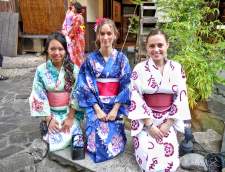





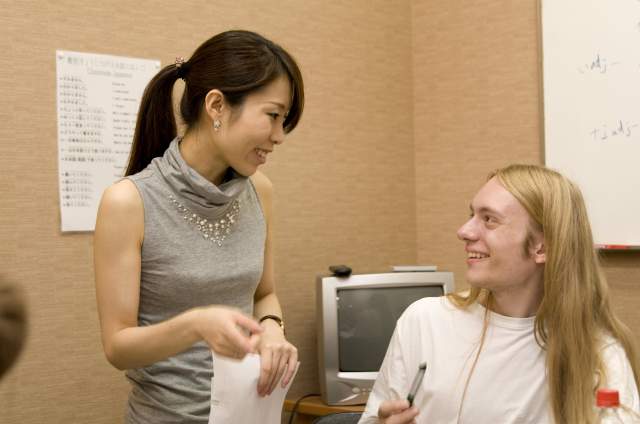
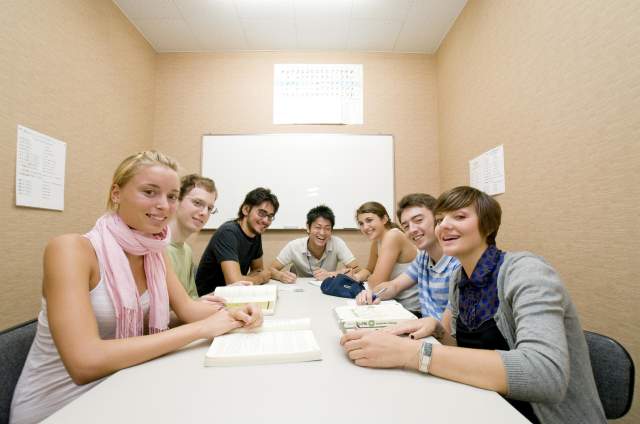
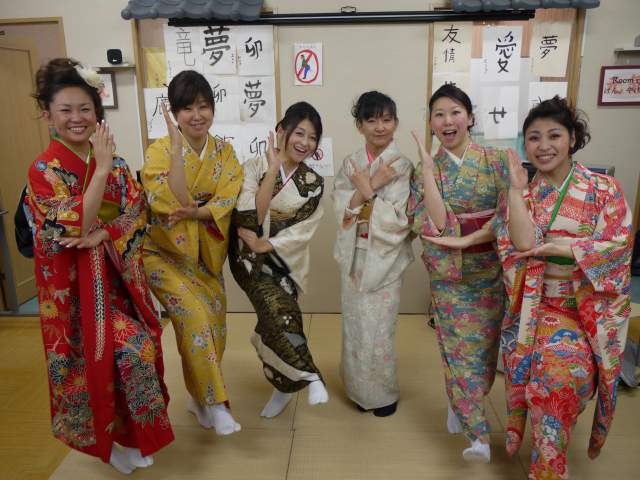
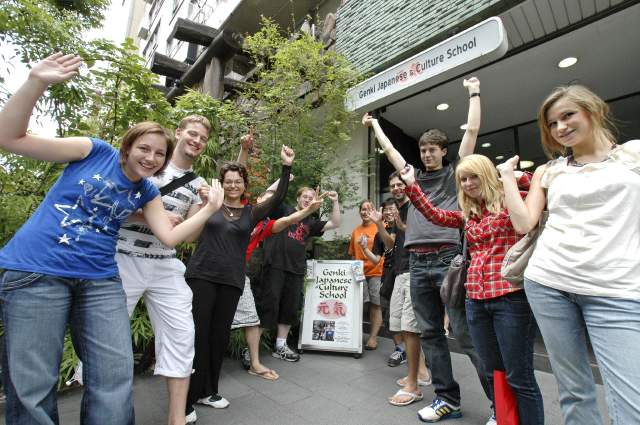
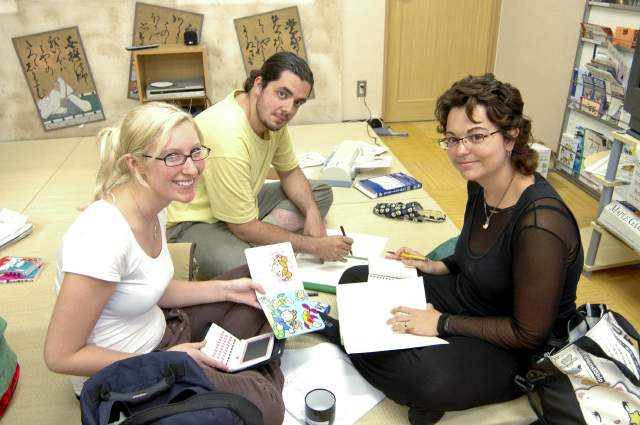
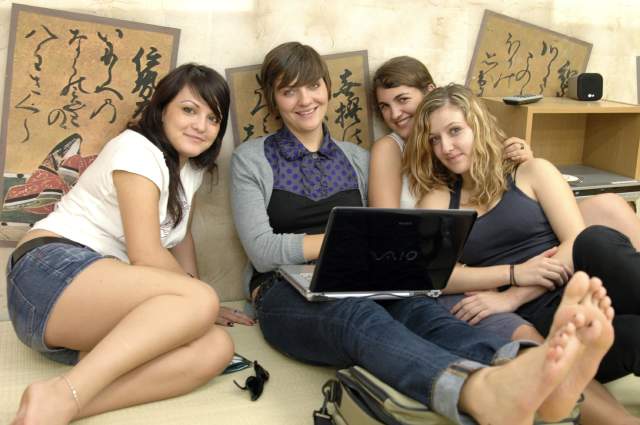
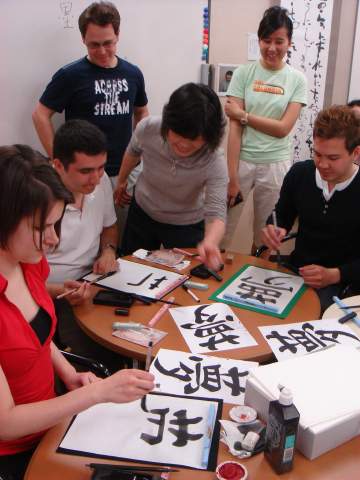
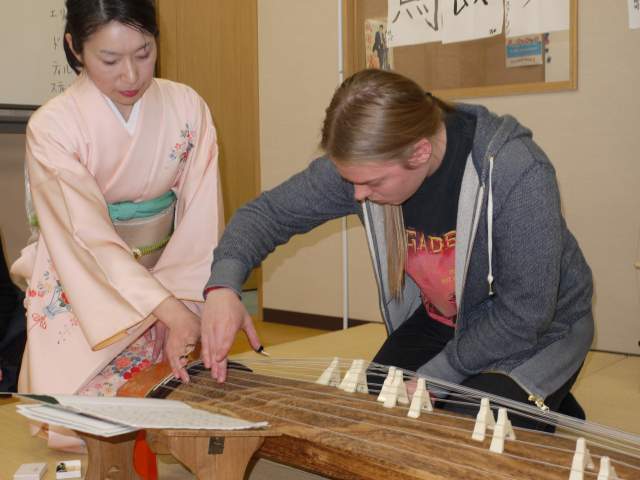
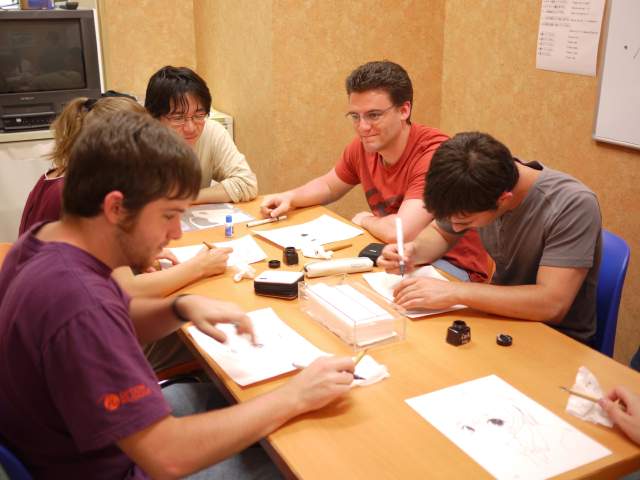
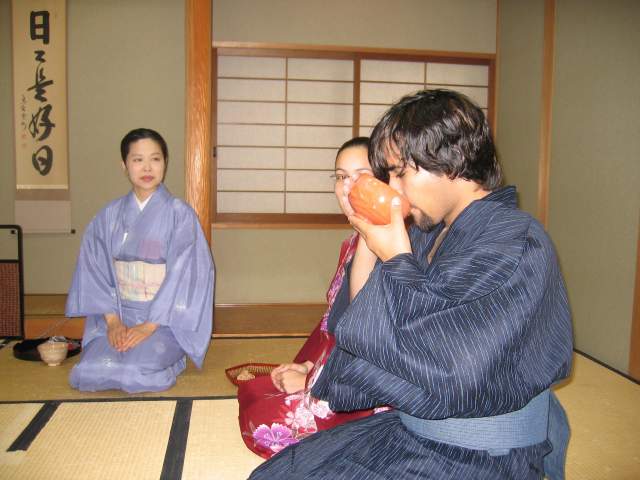
.jpg)
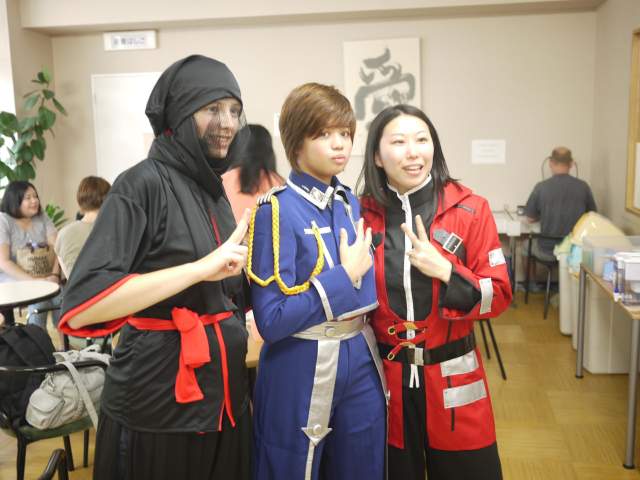
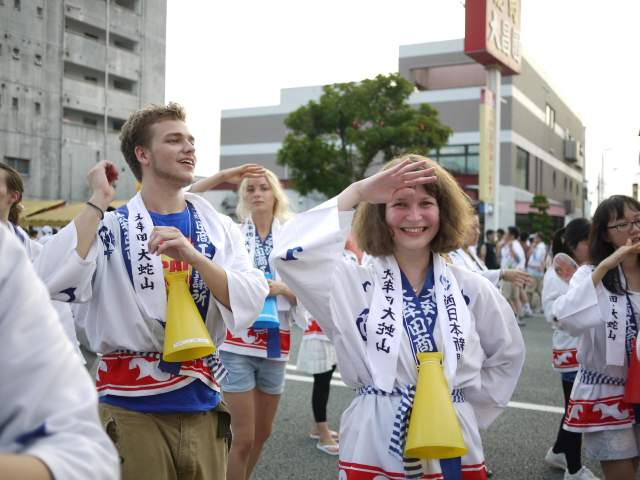

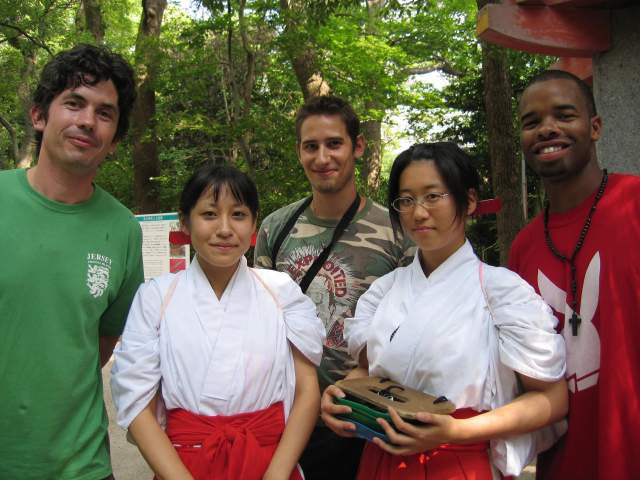

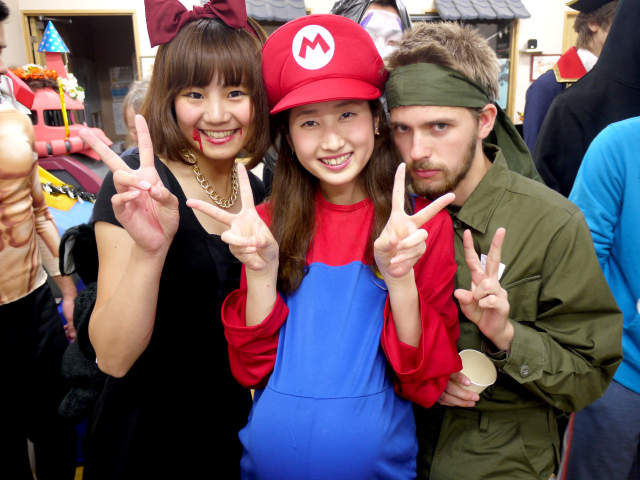
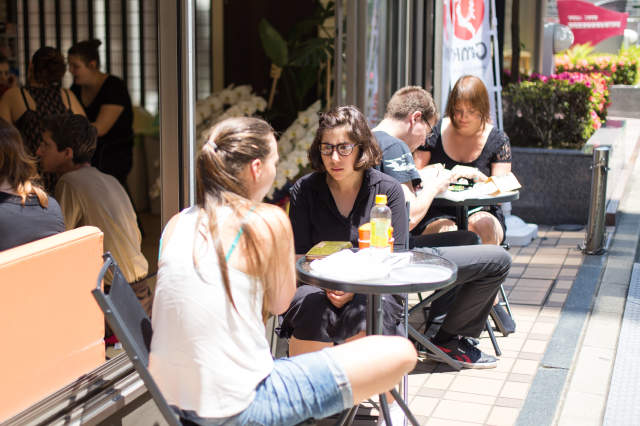
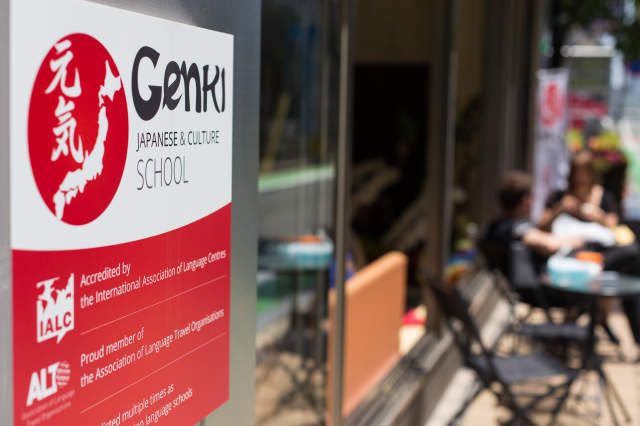
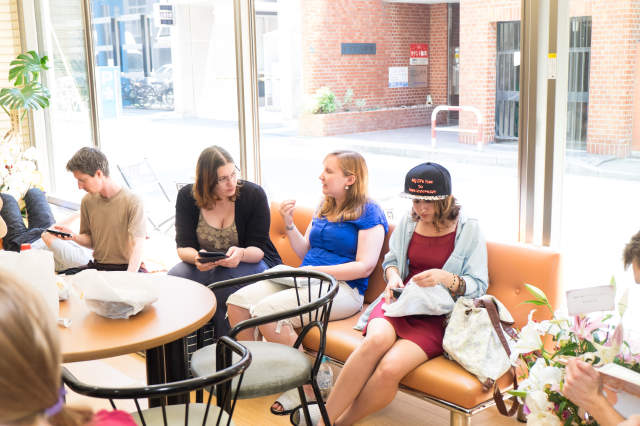












.jpg)















